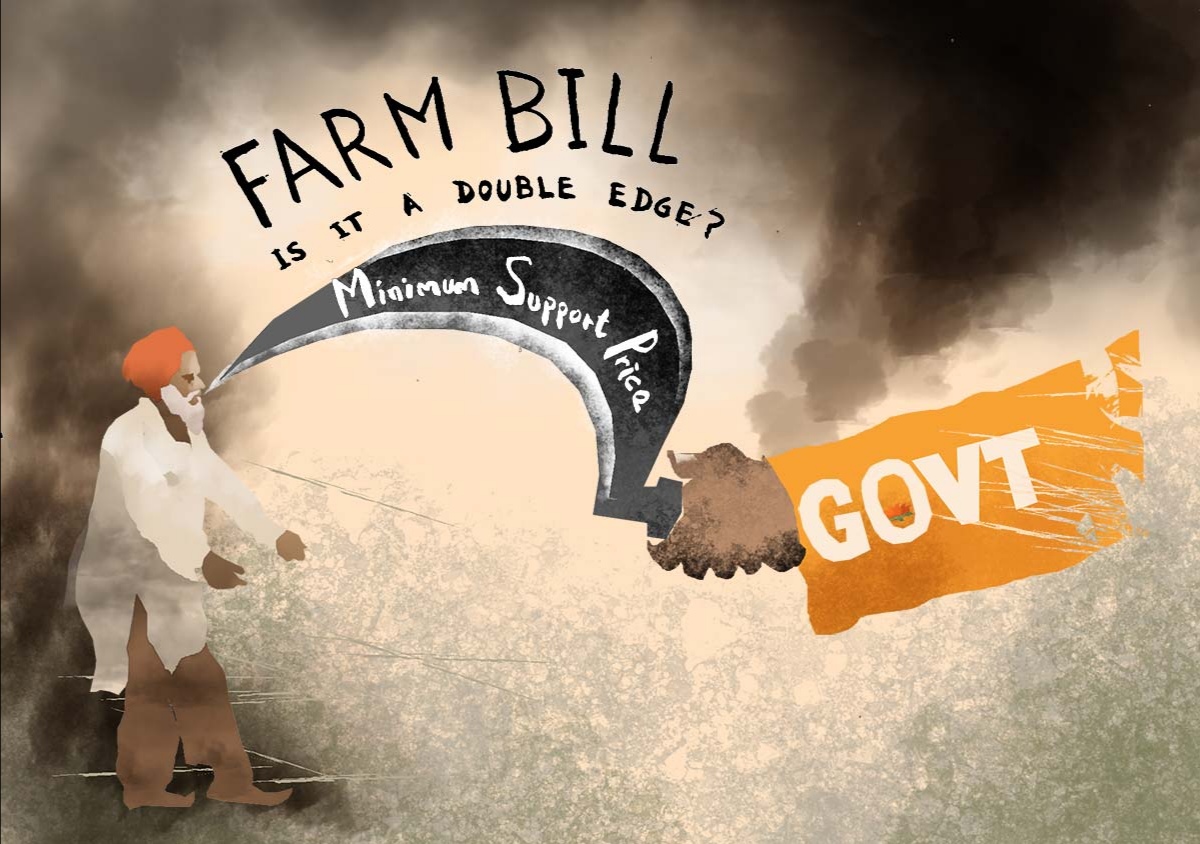India Gives a Befitting Reply to Falsehood in UN General Assembly
- 03-10-2021
- News

In June 2020, President promulgated 3 farm ordinances and on Sept 2020, government enacted them as laws, government’s food processing minister Harsimrat Kaur Badal resigned from her ministry, farmers in all over India started protesting. In Jan 2021, Supreme Court stayed implementation and made 4 members’ committee to mediate. Government has even offered halt of 1.5 years, but farmers don't agree.
So, what actually is the Farmers’ bill?
It has 3 sections, related to farming, trading, and hoarding of agricultural goods.
1. Farmer's Produce Trade and Commerce (Promotion & Facilitation) Act, 2020?
(a) It promotes barrier-free intra - state & inter-state trade of farmer's produce.
(b) It prohibits state governments or APMCs (Agricultural Produce Market Committees) from levying fees, cess or any other charge on farmers produce.
This time, farmers sell their produce in 3 ways -
They can sell their produce in mandis via middle man. Farmers can sell outside their respective mandis but only after paying the APMC Mandi tax. Farmers sell on MSP( Minimum Support Price) to government, a price declared by government before crop plantation of crop.
Now farmers are saying that - This way APMC Mandis will end & eventually, we will be the puppets of corporate. Corporate will decrese the prices in upcoming years, we will be bound to sell them. Government says - APMC will not end, instead farmers will get better prices, farmers will have more choices.
2. Farmers (Empowerment & Protection) Agreement of Price Assurance and Farm Services Act, 2020 ?
The act seeks to provide farmers with a framework to engage in contract farming, where farmers can enter into a direct agreement with a buyer (before sowing season) to sell the produce to them at pre-determined prices. Farmers can give land on lease from one crop season up to 5 years. Companies can contract with farmers to provide seeds, pesticides etc.
Also, in case of dispute, an SDM level officer or any arbitration committee deployed by him will enquire the matter, or might go to combined secretary of central government.
Farmers are of the concern that - If corporate bind us in some unknown situation, what will do? Why don't you clearly say in law that corporate will always buy on a price above MSP? Government says - we can do this if you are ready to withdraw the protest.
3. Essential Commodities (Amendment) Act, 2020 ?
The act removes cereals, pulses, oilseeds, edible oils, onion, and potatoes from the list of essential commodities. In case war, drought, extraordinary price - rising and disaster, these produces can be regulated accordingly.
Previously one couldn't store these crops / commodities beyond certain limit. Government is of the opinion if a private player sets up an industry & can't store in its store houses for uses, why would he invest in this sector? So this will promote Investments now. Farmers disagree by saying - This hoarding is only going to help corrupt traders.
But media is calling it unconstitutional?
So this is constitutional in this way, but we should also know that entry 33 was added in constitution by – 3rd Constitutional Amendment 1954 - According to article 369, responsibility of agricultural trade & commerce within a state was temporarily entrusted to the union government for a period of 5 years beginning from 1950. But the 5 years was amended to "forever in 1954. When this bill of 3rd Constitutional Amendment Act was introduced & sent to a joint committee, it said that this will convert federal constitution into unitary one.
Also Ashok Mehta said then - If centre truly wanted control on trade & Commerce in states then, over time, it would also want to have control over crop planning & cultivation. Thus, bill would lead to an expanding encroachment "on the rights of the states", "a progressive erosion of state powers", and "the possibility of side stepping of democratic processes.
Article 107 says that a bill shall not be deemed to have been passed unless it has been agreed to by both houses, and because voice vote is invalid in Rajya Sabha, so it should not be considered pass from RS. So in this way, farm bill can be called unconstitutional.
What is Supreme Court is saying on the matter?
Supreme court has set up 4 members’ committee but farmers suspect its composition. Supreme Court is giving strange arguments like- we are not experts, we are staying the law to assuage the feelings of farmers, elderly and women should go back from protest’s site etc.
Conclusively, the deadlock still persists. It is the need of the hour that government should find a solution of the matter by consulting farmers and by taking suggestions from experts.